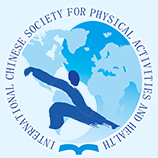Keywords
yoga, sleep quality, sleep disorder, meditation
Publication Date
2-2023
Abstract
With the acceleration of the development of modern science and technology, material production and spiritual production and their products have become alien forces and gradually the ruling tools, People have gradually become the products of science and technology. In this case, pressure and anxiety lead to increased insomnia among people year by year. This paper aims to study the role of fitness yoga in improving sleep disorders and sleep quality in contemporary people. Using fitness yoga and sleep as the keywords, we searched CNKI, Weibo, Wanfang, and other databases. Relevant master's theses and doctoral dissertations, journal articles, conference abstracts and other documents were included for this analysis. Through the analysis of literature, the relationship of fitness yoga to promote sleep and the practical significance of fitness yoga for sleep were examined. The findings showed that yoga exercises are rhythmic whole-body muscle relaxation exercises that reduce skeletal muscle tone, cerebral cortex arousal, and oxygen consumption to improve sleep; Secondly, interest adjustment is rhythmic abdominal deep breathing technique, which increases chest oxygen content, activates parasympathetic nerves, reduces psychological stress, and promotes sleep. Finally, meditation will guide practitioners to focus on their emotions and feelings and encourage them to accept the environment with peace of mind and promote sleep. Students' total sleep index score, subjective sleep quality, sleep disturbance, and daytime function scores in the yoga group decreased significantly. Among them, total sleep index score and subjective sleep quality were highly significant. Sleep disorders among participants in the yoga group were reduced and their daytime function were improved. Subjective sleep quality and overall sleep improved significantly. Yoga is a combination of physical posture, breathing, and meditation, which focuses on not only the practice of posture, but also spiritual practice. Meditation can enable participants to better regulate their emotions, which emphasizes not only physical relaxation, but also psychological relaxation. One-on-one intervention form, meditation practice, gong therapy, yoga breathing practice, intervention type, weekly intervention, two-three times interventions are effective ways to improve sleep quality and reduce sleep disorders. The short-term effect of yoga is significant; however, future research with high quality needs to examine the long-term effect of yoga on sleep quality.
DOI
https://doi.org/10.18122/ijpah.020109.boisestate
Recommended Citation
Liying, Xue
(2023)
"Intervention Relationship in Sleep in Fitness Yoga,"
International Journal of Physical Activity and Health: Vol. 2:
Iss.
1, Article 9.
DOI: https://doi.org/10.18122/ijpah.020109.boisestate
Available at:
https://scholarworks.boisestate.edu/ijpah/vol2/iss1/9
Included in
Exercise Science Commons, Health and Physical Education Commons, Public Health Commons, Sports Studies Commons


